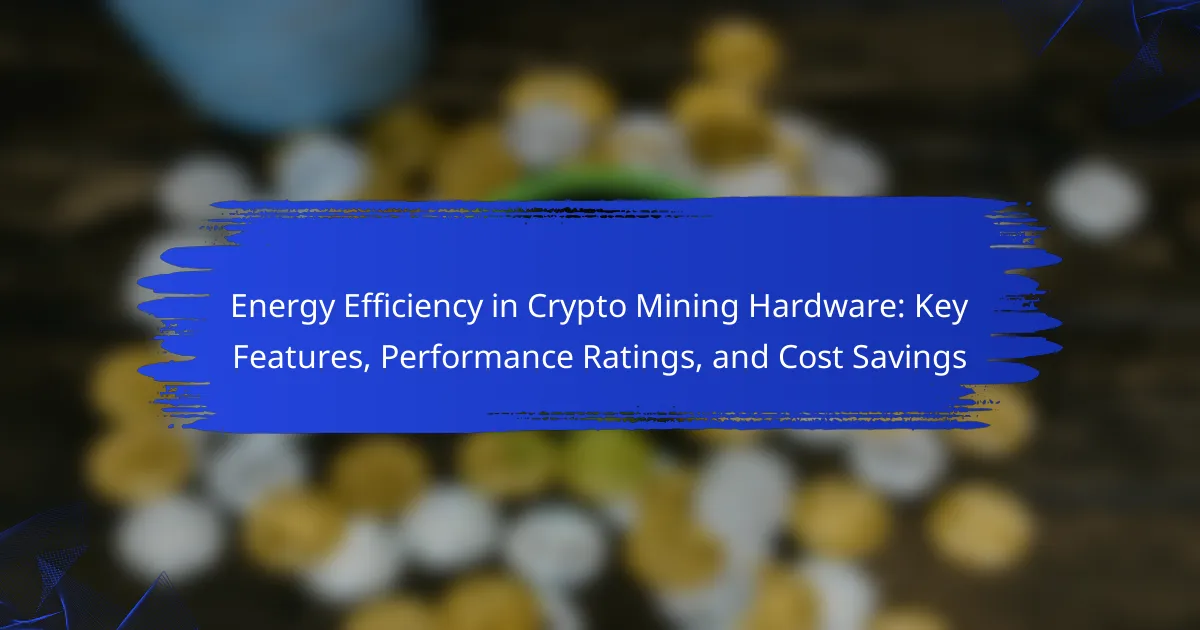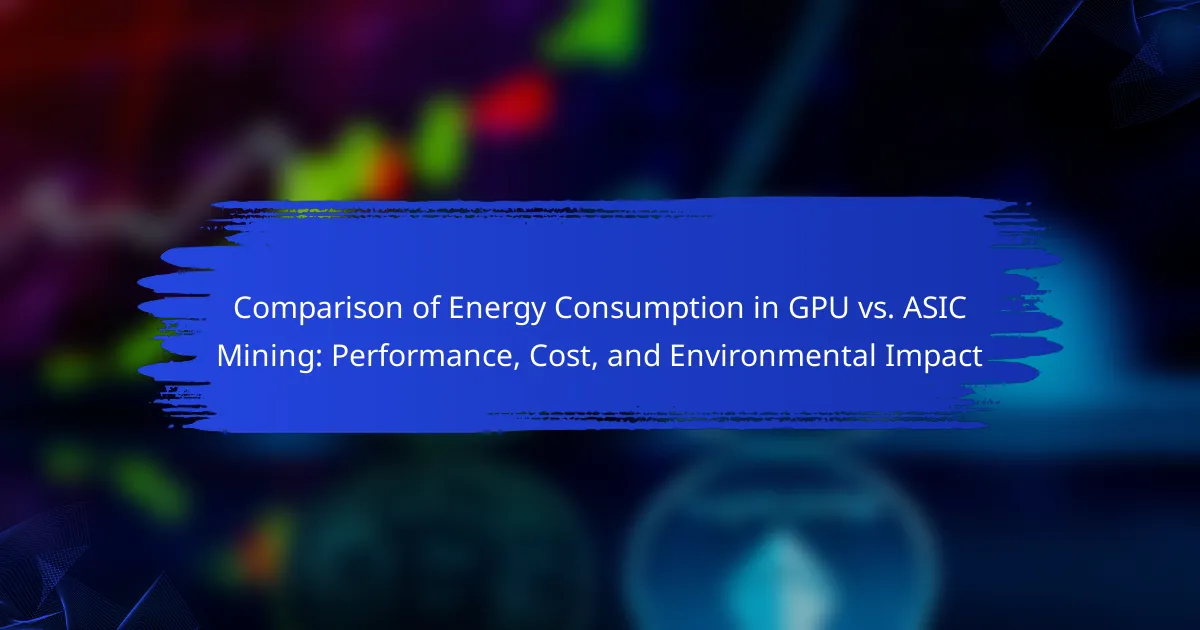Renewable energy solutions for crypto mining, specifically solar power and wind energy, offer sustainable alternatives to traditional fossil fuels. Solar power utilizes photovoltaic cells to convert sunlight into electricity, significantly reducing operational costs and environmental impact. Wind energy employs turbines to harness wind kinetic energy, providing a clean and efficient power source for mining operations. […]

Energy Efficiency in Crypto Mining Hardware: Key Features, Performance Ratings, and Cost Savings
Energy efficiency in crypto mining hardware is defined as the computational power generated per unit of electricity consumed, playing a crucial role in reducing operational costs and environmental impact. High energy efficiency translates to more hashes produced for less energy, which is essential in the competitive landscape of cryptocurrency mining. Key features of energy-efficient hardware […]

Comparison of Energy Consumption in GPU vs. ASIC Mining: Performance, Cost, and Environmental Impact
The article provides a comprehensive comparison of energy consumption between ASIC (Application-Specific Integrated Circuit) mining and GPU (Graphics Processing Unit) mining, focusing on performance, cost, and environmental impact. ASIC miners, designed for specific algorithms, demonstrate significantly higher efficiency and hash rates, achieving around 100 TH/s with lower energy consumption compared to GPUs, which typically reach […]

Carbon Footprint of Litecoin Mining: Emissions, Energy Sources, and Mitigation Techniques
The carbon footprint of Litecoin mining is a significant concern due to its energy-intensive nature, primarily driven by electricity consumption from fossil fuels. Mining operations emit approximately 0.5 to 1.0 tons of CO2 per mined Litecoin, with emissions varying based on regional energy sources. The main contributors to this carbon footprint include the energy used […]

Analysis of Global Energy Consumption in Crypto Mining: Regional Differences, Trends, and Regulatory Impact
The article analyzes global energy consumption in cryptocurrency mining, focusing on Bitcoin as a primary entity. It highlights the substantial energy requirements of crypto mining, which contribute significantly to carbon emissions and environmental concerns. In 2021, Bitcoin mining was estimated to consume around 100 terawatt-hours (TWh) annually, impacting global energy usage and local energy markets. […]

Strategies for Reducing Energy Costs in Crypto Mining: Best Practices, Tools, and Case Studies
Energy-efficient hardware is essential for reducing energy costs in crypto mining. This article outlines various strategies for achieving cost savings, including upgrading to ASIC miners, utilizing renewable energy sources like solar and wind, and optimizing mining operations through efficiency adjustments. It also highlights the benefits of joining mining pools to distribute energy costs, employing advanced […]

Environmental Regulations Impacting Crypto Mining Energy Use: Compliance, Challenges, and Innovations
Environmental regulations are legal frameworks aimed at managing the ecological impact of various activities, including cryptocurrency mining. These regulations are essential for reducing carbon emissions and energy consumption linked to mining operations. Compliance with environmental regulations can lead to sustainable practices within the crypto industry, as exemplified by the European Union’s proposed measures to limit […]

Electricity Usage in Ethereum Mining: Cost Analysis, Sustainability, and Optimization Strategies
Electricity usage in Ethereum mining refers to the electrical power consumed by mining operations that solve complex mathematical problems. This process can consume up to 100 terawatt-hours (TWh) annually, raising concerns about environmental impact and sustainability, particularly due to high carbon emissions and reliance on fossil fuels. Optimization strategies such as using energy-efficient hardware, improving […]

Role of Hydro Power in Bitcoin Mining: Advantages, Location Benefits, and Sustainability
Hydro power is a renewable energy source that significantly impacts Bitcoin mining by providing an efficient and cost-effective alternative to fossil fuels. Countries rich in water resources, such as China and Canada, leverage hydroelectric power to lower operational costs and enhance sustainability in mining operations. Utilizing hydro power can substantially reduce carbon emissions, with studies […]

Power Requirements for ASIC Miners: Performance Metrics, Energy Efficiency, and Cooling Solutions
ASIC miners are specialized devices used for cryptocurrency mining, with power requirements ranging from 500 watts to over 3000 watts, depending on the model and its hashing capabilities. For instance, the Antminer S19 Pro consumes approximately 3250 watts, impacting operational costs and efficiency. The relationship between power consumption and performance is critical, as higher power […]
